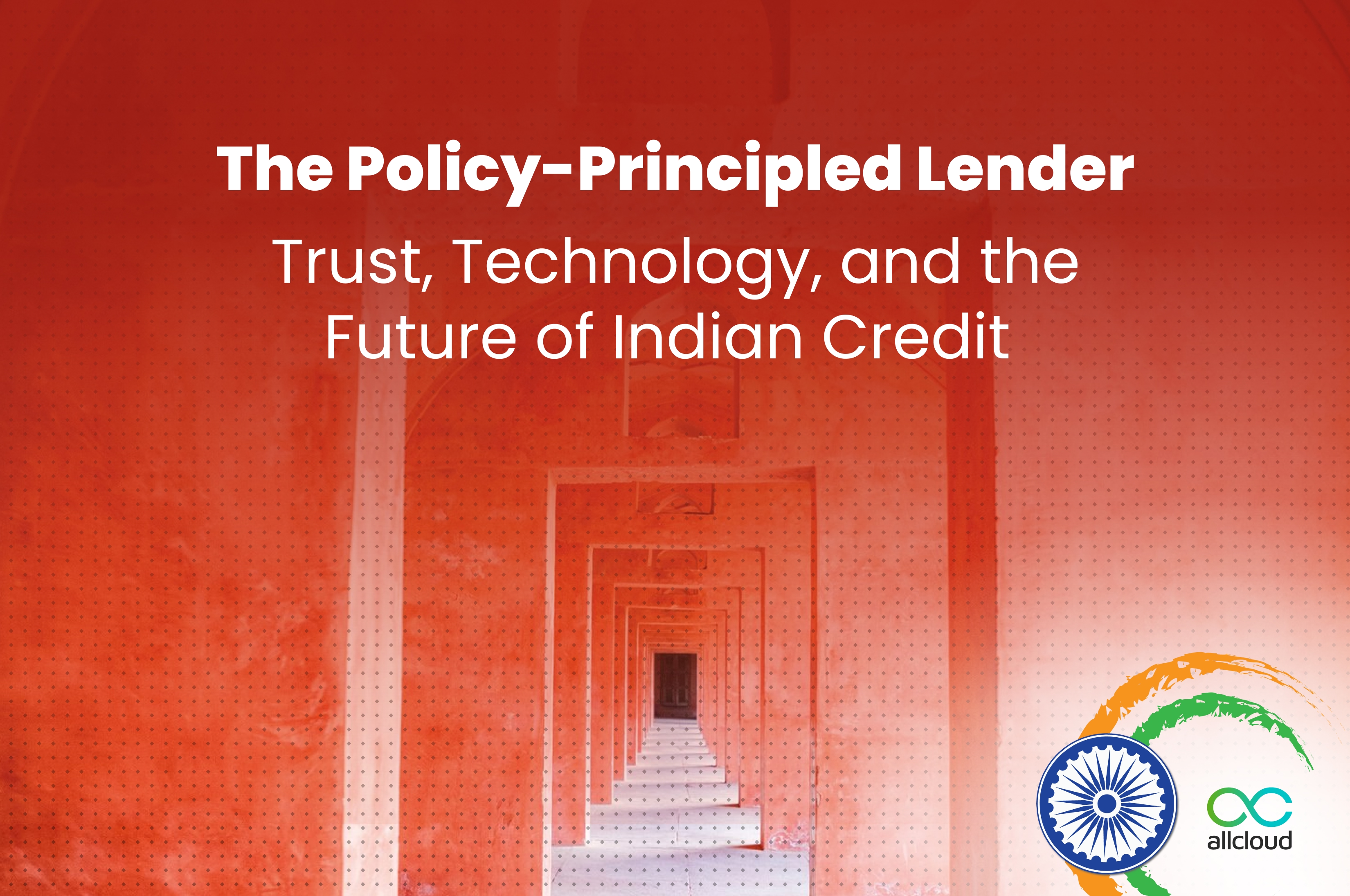The Future of Lending in India: Trust-Driven, Policy-Compliant, Platform-Led
Get In Touch

Heading 1
Heading 2
Heading 3
Heading 4
Heading 5
Heading 6
Lorem ipsum dolor sit amet, consectetur adipiscing elit, sed do eiusmod tempor incididunt ut labore et dolore magna aliqua. Ut enim ad minim veniam, quis nostrud exercitation ullamco laboris nisi ut aliquip ex ea commodo consequat. Duis aute irure dolor in reprehenderit in voluptate velit esse cillum dolore eu fugiat nulla pariatur.
Block quote
Ordered list
- Item 1
- Item 2
- Item 3
Unordered list
- Item A
- Item B
- Item C
Bold text
Emphasis
Superscript
Subscript
Inspired by the book The Future of India by Bimal Jalan
India's Independence was not just a political achievement. It was a promise: of economic dignity, equal opportunity, and financial empowerment for every citizen. In his book The Future of India, former RBI Governor Bimal Jalan outlines this vision—not as nostalgia, but as a forward-looking framework that rests on a trinity of governance, trust, and economic resilience.
As the nation continues to evolve, these pillars remain just as urgent—especially in lending, where policy, platform, and public trust must now align to shape the future of credit. Lending today is not only about interest rates or risk models.
It is about building a digitally empowered credit infrastructure that reflects the constitutional values of access, equity, and transparency.


In the last two decades, India has undergone a silent financial revolution. The JAM trinity—Jan Dhan, Aadhaar, and Mobile—combined with UPI, Account Aggregator frameworks, and digital KYC norms, has laid the foundation for what Jalan might call a "trust infrastructure" for modern lending.
Credit is no longer confined to legacy institutions. NBFCs, fintech's, SFBs, and cooperative banks are now active agents in a credit democracy. But this system can only work if it is policy-principled.
What does it mean to be a policy-principled lender?
It means aligning innovation with public interest. It means using technology not to exclude, but to onboard. It means moving beyond credit scores to include alternate data. It means building compliance into the system—not as a burden, but as a feature.
India’s lending future depends on lenders who understand that technology must be accountable, not opaque. The new RBI digital lending guidelines, co-lending frameworks, and SRO mechanisms are not roadblocks to growth. They are, in fact, enablers of scale with trust. Platforms that integrate compliance by design, disclosures by default, and data protection by principle will be the ones who endure.
This is where technology must do more than automate workflows. It must deepen visibility, simplify risk, and make borrowing more human. For instance, by using consent-based data models, lenders can understand informal income, seasonal cash flows, or repayment behavior of borrowers with no credit history. By embedding vernacular UX and assisted journeys, they can reach populations previously locked out of the formal system.
A truly inclusive credit system isn't just digital. It is digitally empathetic.
At the heart of Jalan's philosophy is the belief that India's future is not just about GDP—it is about how growth is distributed. Lending plays a critical role in this redistribution. A loan to a rural entrepreneur, a woman borrower, or a gig worker is not merely a transaction, it is a transfer of trust. And that trust must be upheld not only by the lender but by the infrastructure that powers the loan.
At AllCloud, we believe lending platforms must be built with policy in mind and people at the center. Our Unified Lending Technology is designed to ensure compliance isn’t an afterthought. It is woven into the user journey—from onboarding to disbursal to collections. Our systems are built to plug into India's regulatory stack—from CKYC to Account Aggregators to digital loan contracts—enabling lenders to scale responsibly.
More importantly, AllCloud empowers lenders to serve India’s next 400 million borrowers with contextual underwriting, alternate data support, Co-Lending orchestration, and risk-based pricing. These aren’t just features. They are building blocks for a credit ecosystem rooted in institutional strength and technological trust.

.png)





